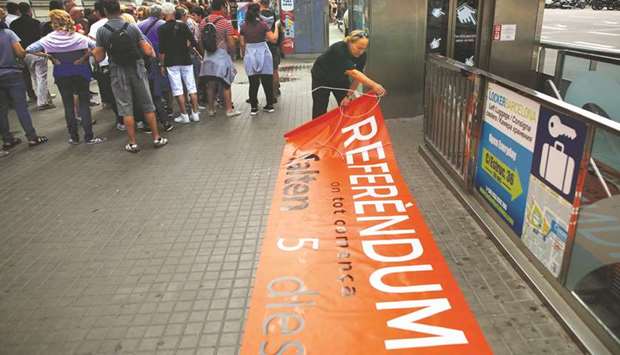Preacher Abu Walaa, suspected of being the Islamic State (IS) group’s de facto leader in Germany, went on trial yesterday accused of radicalising young men and running a religious extremist network linked to the Berlin Christmas market attacker.
Nicknamed “the faceless preacher” for showing his back to the camera in propaganda videos, the 33-year-old Iraqi was arrested last November on suspicion of being the “central figure” in an IS recruitment ring.
Walaa – named by the authorities as Ahmad Abdulaziz Abdullah Abdullah – appeared before a court in the northern German city of Celle alongside four co-defendants accused of supporting IS.
The five created a “pan-regional (religious extremist) network” in which Walaa “took on the leading role as the representative of the so-called Islamic State in Germany”, prosecutors said in their indictment. “The goal of the network was to send people to IS in Syria or Iraq.”
The closely-watched terror trial, expected to run until early 2018, opened under heavy security with armed police on patrol outside the courthouse.
The suspects sat behind a bullet-proof glass screen in court.
If found guilty, they face up to 10 years in prison, according to DPA news agency.
“For a long time little has been known about the backroom men, those who seduce and incite to (religious extremism),” Der Spiegel news weekly wrote, describing the proceedings as “one of the most interesting (religious extremist) trials in recent years”.
A shadowy figure who long evaded capture, Walaa has been linked to some of Germany’s most high profile religious extremist attacks since arriving in the country in 2001.
After setting up his base in Hildesheim, a northern town seen as a hotbed of religious radicalism, the preacher made a name for himself delivering extremist sermons at the notorious DIK mosque, which has since been shut down.
Walaa, who has two wives and several children, also gave seminars across the country calling for religious militancy.
He notably spoke at a Berlin mosque frequented by Anis Amri, who drove a truck through a crowded Christmas market last December, killing 12 people.
German intelligence services took pictures of Amri in Hildesheim some 10 months earlier, prompting speculation that he had ties to the network.
Amri was shot dead by police in Italy days after his rampage.
Walaa’s four accomplices – a Turkish national, a German, a German-Serbian, and a Cameroonian, aged between 27 and 51 – are likewise accused of indoctrinating young men with extremist ideology.
German media reported that among their “students” was at least one of the three teenage boys who last year set off a home-made bomb at an Indian wedding, badly wounding a Sikh priest.

Catalan National Assembly member and Terrassa town hall staffer Pep Rovira rolls up a banner after Catalan Mossos d’Esquadra officers prohibited his protest yesterday in favour of the banned October 1 referendum at Catalunya square in Barcelona. The banner reads ‘Referendum. Where everything starts. 5 days left’.
